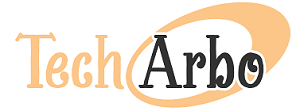Data Annotation Tools: Importance, Types & Benefits

Data annotation is an essential aspect of machine learning and artificial intelligence that helps train algorithms to recognize patterns and make predictions accurately. However, data annotation can be time-consuming, tedious, and prone to errors. Fortunately, robust tools are now available that can help streamline the data annotation platform and process and improve the accuracy of the annotations.
This article will discuss how robust tools can help you with your data annotation project.
The Importance of Robust Tools in Data Annotation
Robust tools are essential for data annotation projects because they help streamline the process, reduce errors, and improve the accuracy of the annotations. With robust tools, the data annotation process can be more efficient and prone to errors, resulting in reliable annotations and better results.
Several types of robust tools can help with data annotation projects, including:
Annotation Software
Annotation software is a tool that helps with image and video annotation by providing a user-friendly interface for labeling data. The software can be customized to fit specific requirements, such as the type of annotation needed, the format of the data, and the level of detail required.
Annotation software can also provide automated features, such as object detection, that can help speed up the annotation process and reduce errors.
Natural Language Processing (NLP) Tools
NLP tools are essential for text annotation projects as they help analyze and understand the meaning of the text. NLP tools can identify key phrases, sentiments, and other important text features that can be annotated.
NLP tools can also help with automated annotation by providing labeling suggestions based on the text’s context.
Quality Control Tools
Quality control tools are essential for ensuring the accuracy and consistency of the annotations. Quality control tools can provide automated checks for errors, such as misspellings, incorrect labels, or inconsistent formatting.
Quality control tools can also provide feedback to the annotators, helping them improve the quality of their annotations and reduce errors.
The Benefits of Using Robust Tools for Data Annotation
Using robust tools for data annotation projects provides several benefits, including:
Improved Accuracy
Robust tools can improve the accuracy of annotations by reducing errors and inconsistencies. Automation features, such as object detection or automated labeling suggestions, can help speed up the annotation process while maintaining accuracy.
Quality control tools can also help ensure that the annotations are consistent and reliable, reducing the risk of errors.
Increased Efficiency
Robust tools can increase the efficiency of the data annotation process by reducing the time required for annotation. Automation features like object detection or automated labeling suggestions can speed up the annotation process.
Customizable software can also help streamline the annotation process by fitting the requirements of the specific project, such as the type of annotation needed, the format of the data, and the level of detail required.
Cost Savings
Using robust tools for data annotation projects can save costs by reducing the time required for annotation and minimizing the need for manual labor. Automation features help reduce the workload of annotators, allowing them to focus on more complex tasks that require human input.
Scalability
Robust tools can help scale data annotation projects to meet the needs of larger datasets. Automation features and customizable software can speed up the annotation process and handle larger volumes of data.
Summing Up
Data annotation is a critical aspect of machine learning and artificial intelligence that requires accuracy, consistency, and reliability. The use of robust tools, such as annotation software, NLP tools, and quality control tools, can help streamline the data annotation platform, improve the accuracy of annotations, and reduce the risk of errors.
By using robust tools, data annotation projects can become more efficient, cost-effective, and scalable, allowing organizations to train algorithms more effectively and make more accurate predictions.







